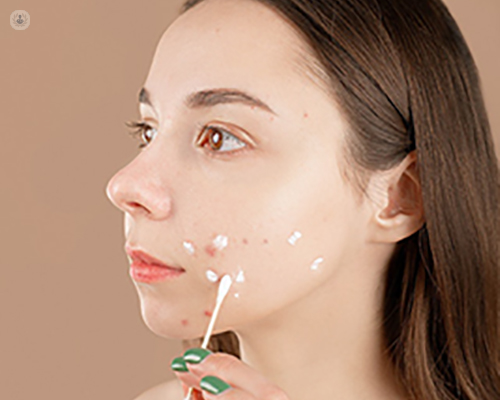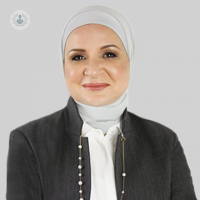Isotretinoin Unveiled: An expert's overview
Written by:
In her latest online article, highly esteemed dermatologist Dr Hiba Injibar gives us her insights into Isotretinoin, more commonly known as roaccutane. She explains what isotretinoin is, who is at risk, the side effects and the benefits.

What is isotretinoin?
Roaccutane is the brand name of a medicine called isotretinoin, which is part of a group of medicines known as retinoids. These medicines are related to vitamin A and are naturally present in the body in small amounts. Roaccutane is mainly prescribed for people with severe or cystic acne, but it can also help with some types of cancer and some serious skin problems. It works by making the sebaceous glands less active and smaller. It also helps to reduce inflammation in the skin.
What does isotretinoin do?
It has different effects, dealing with different reasons for acne such as the creation of sebum which is an oily substance created by the skin, also the creation of keratin, the outer scales of skin that blocks the pores of the hair follicle.
Is isotretinoin high risk?
There is a high likelihood that isotretinoin will make the pregnancy end or will make the baby come out too soon, to die soon after coming out, or to be born with birth defects (physical problems that are there at birth).
Does it have any side effects?
In general, the skin, lips, and eyes becoming dry is the most common side effect. Applying a non-comedogenic moisturiser (one that does not clog the skin pores) and lip balm often will help. In more serious cases, this can become eczema and may need extra treatment.
Nosebleeds may happen if the inside of the nose gets very dry. Dry eyes may make the use of contact lenses a bit uncomfortable and may be helped by using artificial tears eye drops that can be bought without a prescription. Since the skin becomes dry and cracked, the risk of skin infection is increased.
Wounds may also heal slower, and the skin may feel fragile and peel with irritation. As you take isotretinoin, and for six months following, your skin will be more sensitive than usual. You should avoid hair removal using waxing, epilation, dermabrasion, or laser treatment, as well as tattoos and piercings. Shaving is usually allowed, but moisturising after is recommended.
It can increase blood lipids and liver enzymes in susceptible individuals and therefore baseline fasting blood tests are done and repeated every 2 or 3 months whilst on treatment.
Muscles and joints may hurt especially after exercise. Temporary hair shedding may occasionally occur.
What are the benefits of isotretinoin, and how is their quality of life?
Isotretinoin is a medication that dermatologists use to treat severe and painful acne that does not respond to other therapies. It can reduce or eliminate the acne and prevent scarring from new outbreaks.
Dr Hiba Injibar is highly regarded dermatologist with over 20 years’ experience in her field of work. You can schedule an appointment with her today on her Top Doctor’s profile.


